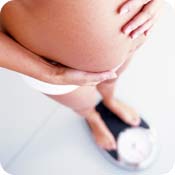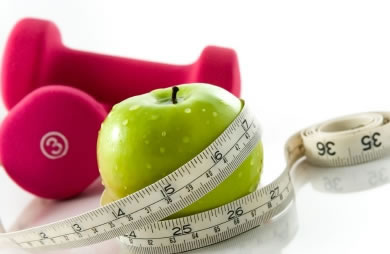
Don't Forget the Folate One nutrient worth special consideration when you are preparing your body for pregnancy is folate or folic acid. This vitamin has been shown to significantly reduce the risk of having a baby with neural tube defects, such as spina bifida, which is a defect in the spinal column. Folate helps develop the neural tube that becomes the baby's spine. The neural tube starts to develop shortly after conception and is closed at 28 days. The recommendation for folate prior to conception is 0.4 milligrams, or 400 micrograms everyday. Foods rich in folate include citrus fruits and juice; dark, green, leafy vegetables like spinach; whole grain and fortified breads and cereals; wheat germ; nuts; legumes; lentils; and lima beans. To read more about folate, click here. Iron out anemia Your doctor may recommend that you have a blood test to find out if you are deficient in iron before you get pregnant. Women who have iron-deficiency anemia are at an increased risk for preterm delivery and low birth-weight babies. Therefore, if it is determined that you have iron deficiency, you will probably start taking an iron supplement. To read more about iron, click here. Supplement savvy Even if you are eating a healthy diet, your doctor may recommend a prenatal supplement 2-3 months before conception. This supplement will contain additional necessary nutrients including folate, iron, and calcium. Some women experience less morning sickness complications such as nausea and vomiting if they begin a prenatal supplement before conception. The nutrient zinc, also found in the supplement, may help with fertility. Once you begin taking the prenatal supplement, you should STOP taking other supplements. Excessive amounts of certain nutrients can be toxic and hazardous to your health and the baby's development. Now is also the time to discuss with your doctor any herbal supplements, teas, or products that you may be taking. Some of these products may be harmful to your baby. Aim for a healthy weight Ask your doctor what your healthy weight should be and then do your best to reach that target before getting pregnant. Being overweight or underweight can reduce your chances of conception. It can also increase the risk of pregnancy complications. Underweight: Women who are underweight have a higher chance of having a preterm delivery or giving birth to a smaller baby. To gain weight, you will need to eat more. Here are some tips: Continued › |






Member Comments